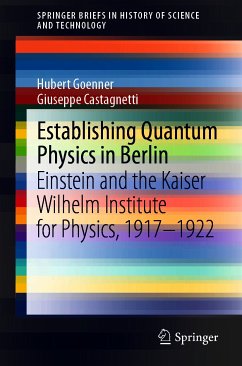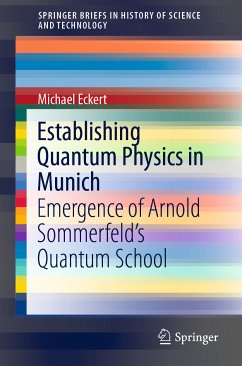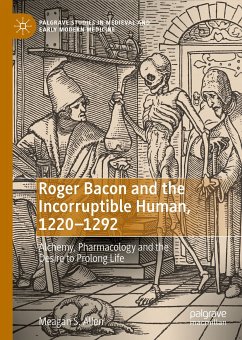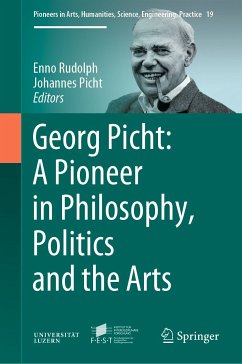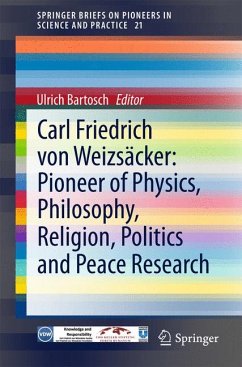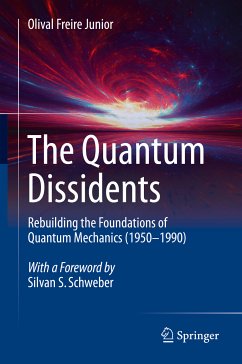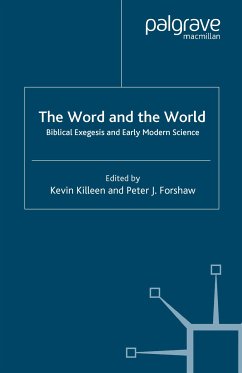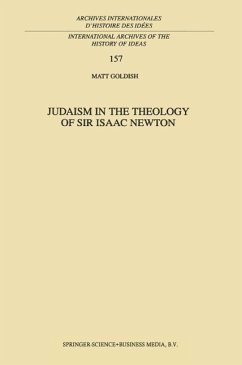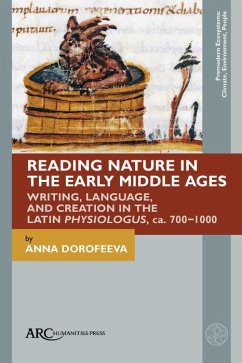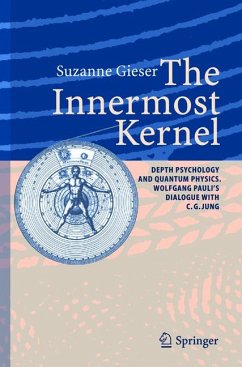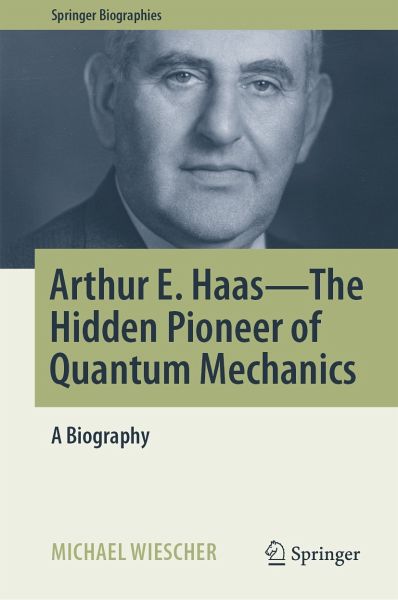
Arthur E. Haas - The Hidden Pioneer of Quantum Mechanics (eBook, PDF)
A Biography
Versandkostenfrei!
Sofort per Download lieferbar
96,95 €
inkl. MwSt.
Weitere Ausgaben:

PAYBACK Punkte
48 °P sammeln!
The book highlights the personal and scientific struggles of Arthur Erich Haas (1884-1941), an Austrian Physicist from a wealthy Jewish middle-class family, whose remarkable accomplishments in a politically hostile but scientifically rewarding environment deserve greater recognition.Haas was a fellow student of both Lise Meitner and Erwin Schrödinger and was also one of the last doctoral students of Ludwig Boltzmann. Following Boltzmann's suicide, Haas was forced to submit a more independent doctoral thesis in which he postulated new approaches in early quantum theory, actually introducing th...
The book highlights the personal and scientific struggles of Arthur Erich Haas (1884-1941), an Austrian Physicist from a wealthy Jewish middle-class family, whose remarkable accomplishments in a politically hostile but scientifically rewarding environment deserve greater recognition.
Haas was a fellow student of both Lise Meitner and Erwin Schrödinger and was also one of the last doctoral students of Ludwig Boltzmann. Following Boltzmann's suicide, Haas was forced to submit a more independent doctoral thesis in which he postulated new approaches in early quantum theory, actually introducing the idea of the Bohr radius before Niels Bohr. It is the lost story of a trailblazer in the fields of quantum mechanics and cosmology, a herald of nuclear energy and applications of modern science.
This biography of Haas is based on new and previously unpublished family records and archived material from the Vienna Academy of Science and the University of Notre Dame, which the author has collected over many years. From his analysis of the letters, documents, and photos that rested for nearly a century in family attics and academic archives, Michael Wiescher provides a unique and detailed insight into the life of a gifted Jewish physicist during the first half of the twentieth century. It also sheds light on the scientific developments and thinking of the time. It appeals not only to historians and physicists, but also general readers. All appreciate the record of Haas' interactions with many of the key figures who helped to found modern physics.
Haas was a fellow student of both Lise Meitner and Erwin Schrödinger and was also one of the last doctoral students of Ludwig Boltzmann. Following Boltzmann's suicide, Haas was forced to submit a more independent doctoral thesis in which he postulated new approaches in early quantum theory, actually introducing the idea of the Bohr radius before Niels Bohr. It is the lost story of a trailblazer in the fields of quantum mechanics and cosmology, a herald of nuclear energy and applications of modern science.
This biography of Haas is based on new and previously unpublished family records and archived material from the Vienna Academy of Science and the University of Notre Dame, which the author has collected over many years. From his analysis of the letters, documents, and photos that rested for nearly a century in family attics and academic archives, Michael Wiescher provides a unique and detailed insight into the life of a gifted Jewish physicist during the first half of the twentieth century. It also sheds light on the scientific developments and thinking of the time. It appeals not only to historians and physicists, but also general readers. All appreciate the record of Haas' interactions with many of the key figures who helped to found modern physics.
Dieser Download kann aus rechtlichen Gründen nur mit Rechnungsadresse in A, B, BG, CY, CZ, D, DK, EW, E, FIN, F, GR, HR, H, IRL, I, LT, L, LR, M, NL, PL, P, R, S, SLO, SK ausgeliefert werden.



